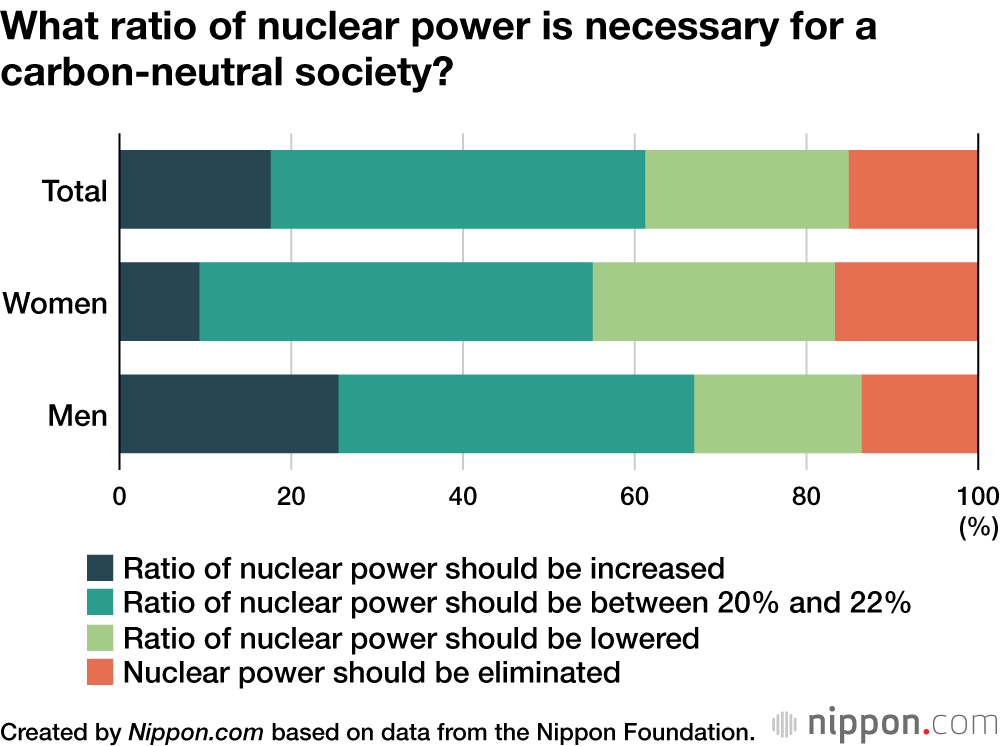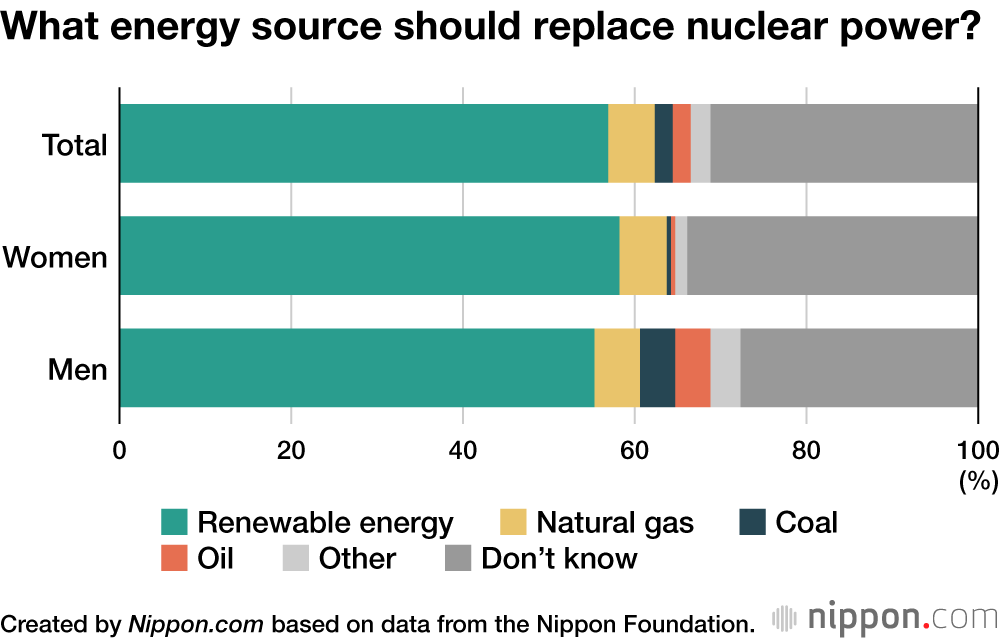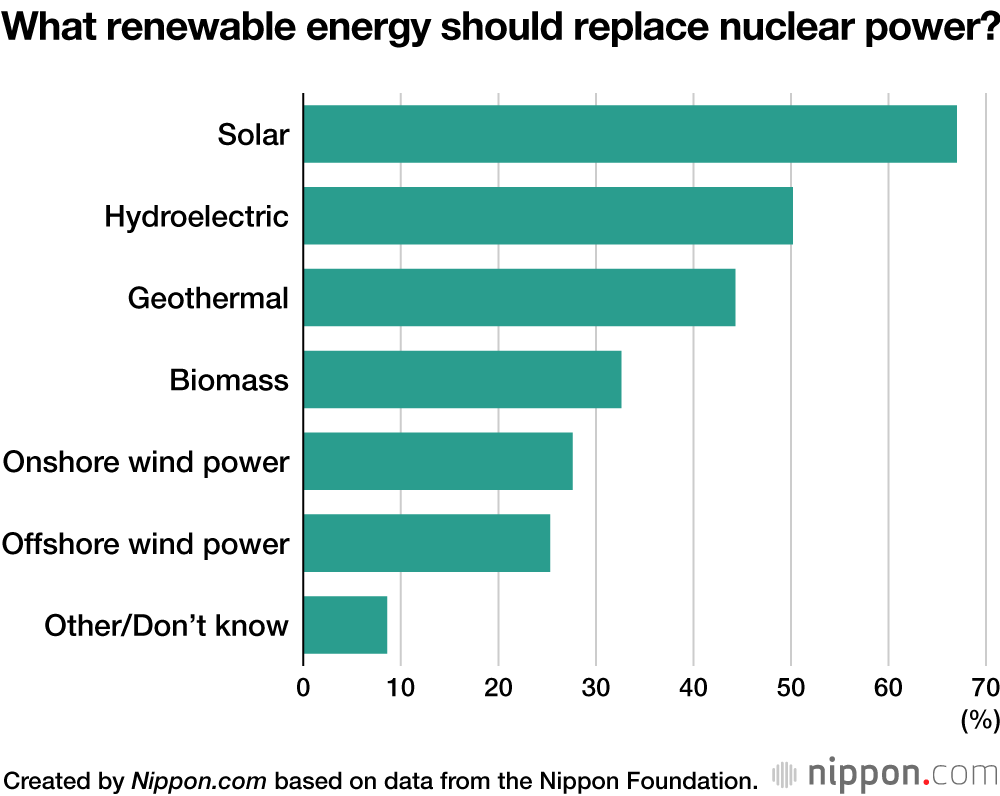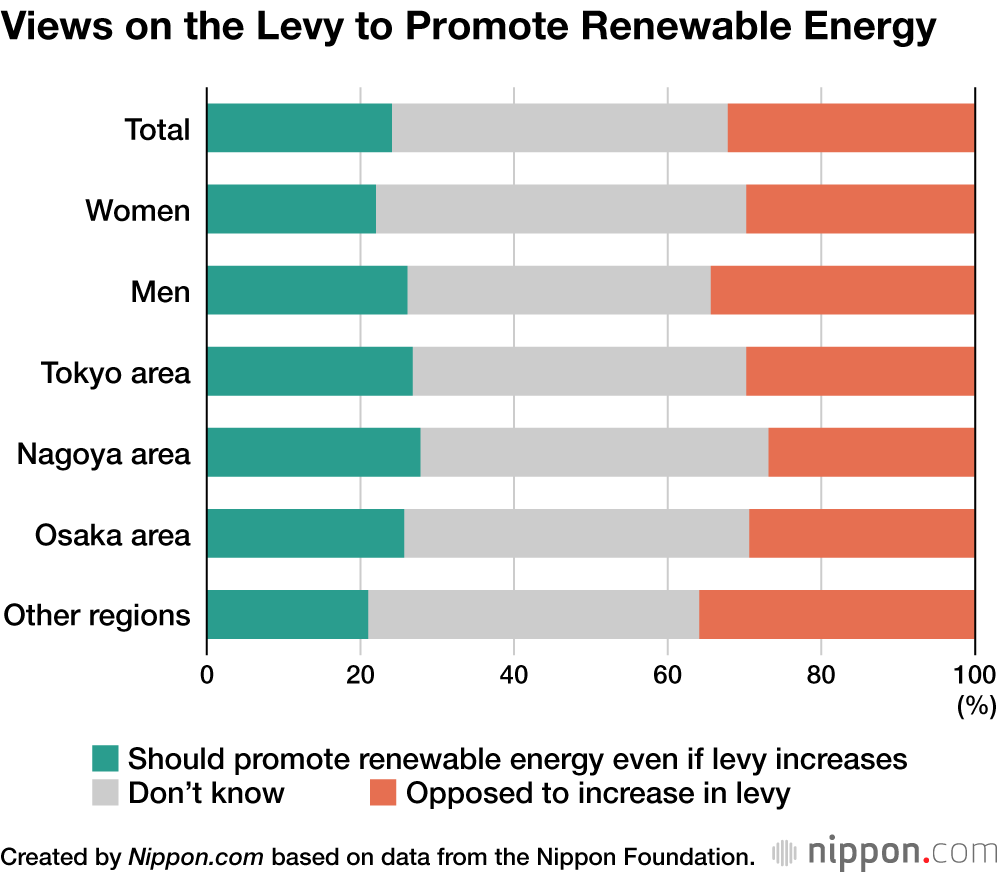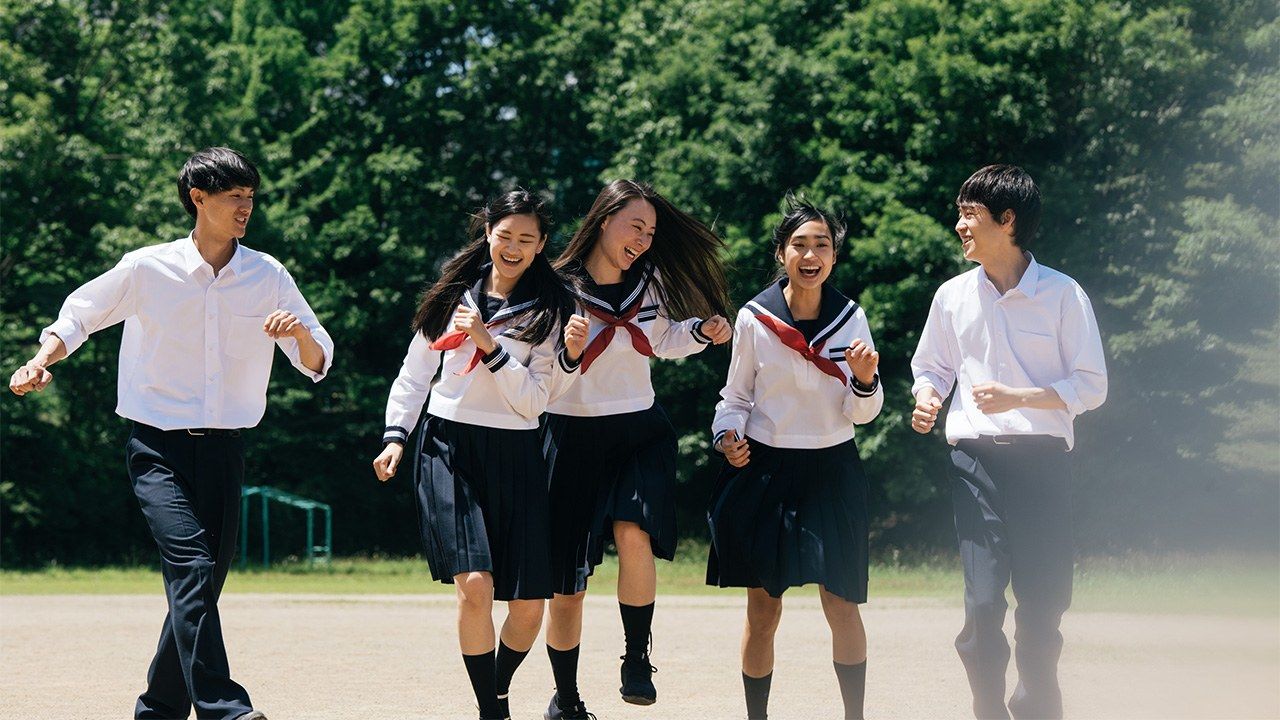
Young Japanese People Give Views on Energy
Economy Environment Society- English
- 日本語
- 简体字
- 繁體字
- Français
- Español
- العربية
- Русский
The Nippon Foundation conducted a survey to gauge the views of young people toward energy-related issues, and received 1,000 responses from people aged 17 to 19.
One objective set under the government’s Sixth Strategic Energy Plan is for nuclear power generation to account for 20% to 22% of the nation’s power supply mix by 2030, as part of the effort to achieve carbon neutrality by 2050. Among the young people surveyed, around 60% were in favor of that goal of increasing the ratio of nuclear power generation, while 15.1% thought that nuclear power should be completely abandoned. Male respondents tended to be more in favor of nuclear power than female respondents.
Around 60% of the survey respondents who said that nuclear power should be either reduced or completely abandoned called for it to be replaced by renewable energy. The trend in responses among those respondents was the same for women and men.
The most popular specific types of renewable energy sources respondents favored were solar, hydroelectric, and geothermal, in that order. Meanwhile, wind power (both onshore or offshore) was chosen by less than 30% of people.
In order to promote the use of renewable energy, which is more expensive, a renewable energy purchase fee is collected from all electricity users in the form of a levy. As the percentage of renewable energy increases, the levy may become more burdensome. More survey respondents were opposed to an increase in the levy than those who thought renewable energy should be promoted even if the levy increases.
(Translated from Japanese. Banner photo © Pixta.)
